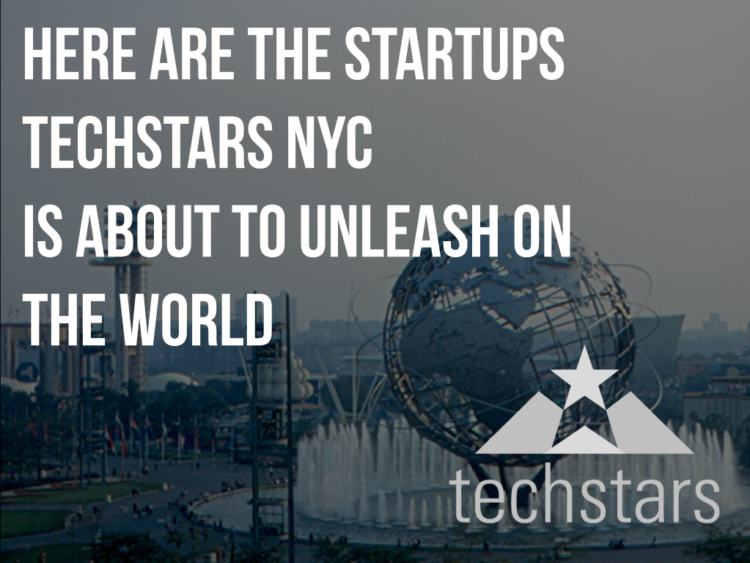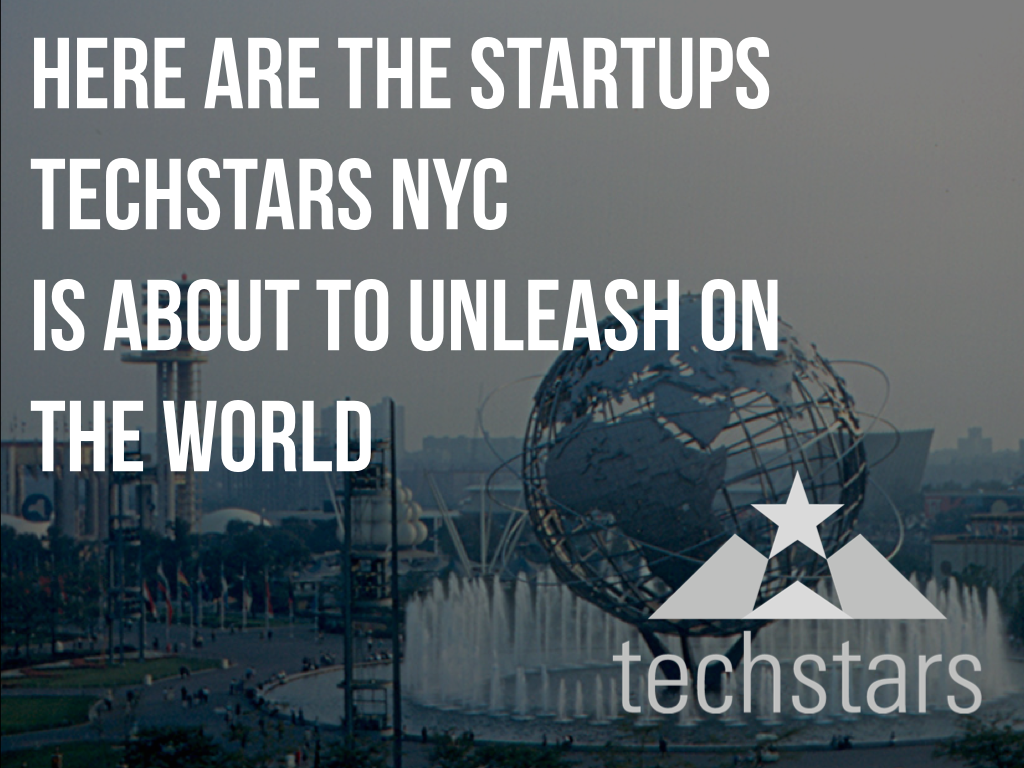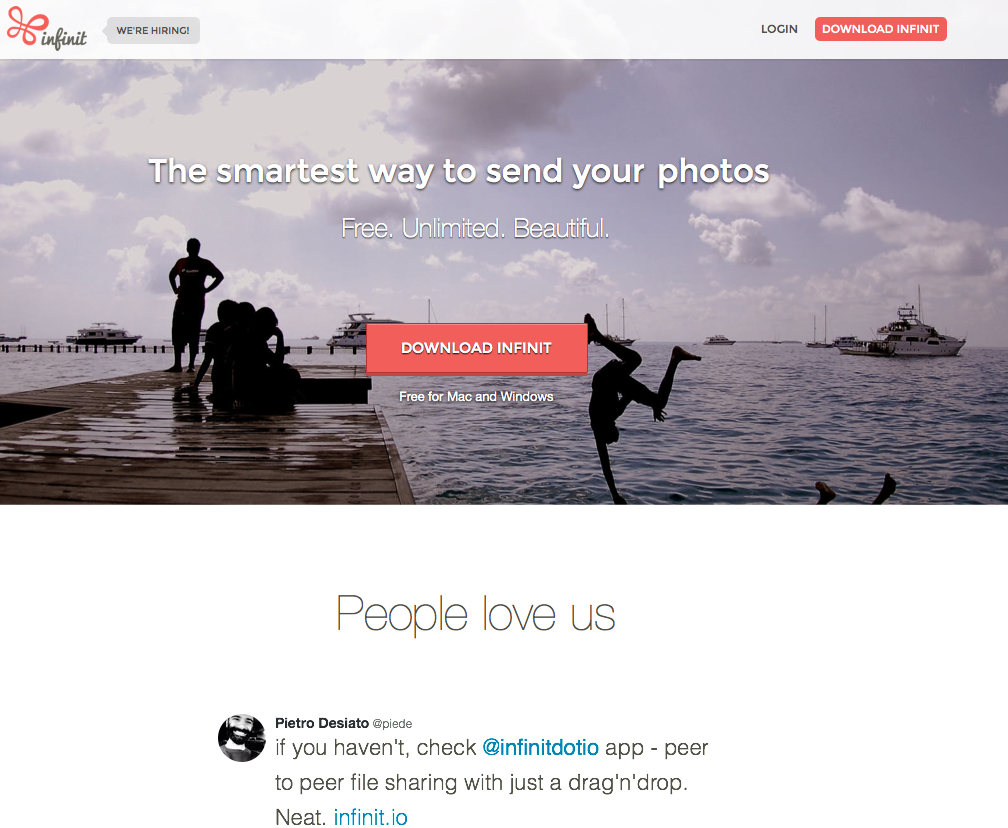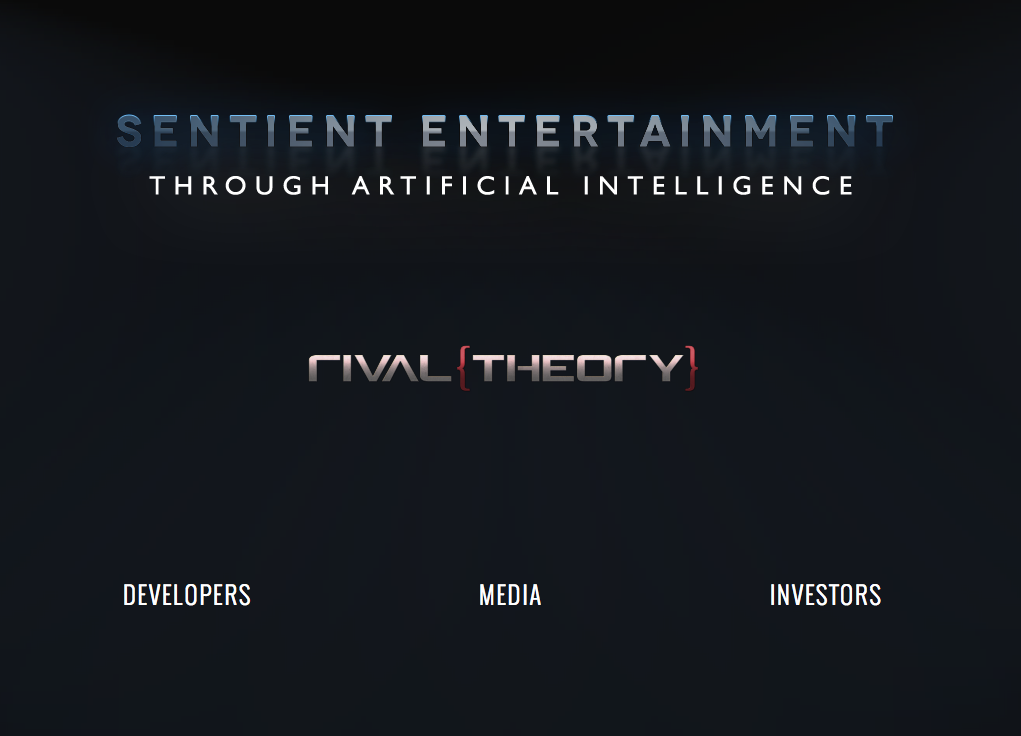Here’s a sneak preview of the companies that are going to kill it at Techstars NYC Demo Day tomorrow, and the first class to debut under the guidance of new managing director Alex Iskold. They’re taking on everything from music to science. AI to Wi-Fi to DIY. Heads up and remember: these aren’t just startups. They’re Techstars.
CLICK HERE TO SEE ALL THE STARTUPS
Image credit: CC by Roger Wollstadt
Concert Window
Musicians (and fans) take heart and you know how it goes. When one door closes, a window opens. The Concert Window team are musicians themselves (one plays accordion; one plays bagpipes. Seriously) and they know the drill: You have to book a venue months in advance, and make a pittance for your efforts. Well, that’s changing. Concert Window is an online music venue where two-thirds of ticket sales and tips go directly to the artist. (They can sell merchandise, too, for the record, and pun intended.) The best part is: everyone gets the best seats in the house: Musicians perform live shows from the comfort of their own homes. Fans can enjoy the show while they indulge their inner couch potatoes. All you need to put on a show is a laptop, and with the world so digitally connected, it’s a great way to reach fans all over the world – and help to disrupt the $27B live music market. Around 350 concerts a night are currently being booked through the platform.
Matter
What happens when you have a development team whose background include MIT, Cornell and Makerbot? 3D printing is a given. First, you build software. Then you bring in jewelry designers. Then you realize that you’re stepping into a (backwards) $40B market with a high cart abandonment rate.
“You need more than just 3D printing,” said co-founder Dylan Reid. “You need the whole supply chain.”
Good point. So the company pivoted, opened the platform up to custom jewelry designers, offered the entire supply chain (meaning from CAD to customer) and voila – disruption. And the first digital factory for jewelry designers was born. Now anyone with a 3D file can do full-scale manufacturing – or just a one-off. Here’s the deal: designers currently have to find different vendors for different stages of their production. Not to mention having to deal with inventory. Matter takes care of all of those matters, from 3D printing (in metals or precious metals) to shipping/handling and delivery to the customer. They’ve automated the entire supply chain and allow jewelry designers to focus on what matters to them – the designs themselves. They can also repair a file, and programmatically source and order, say, a diamond. Making Matter a one stop designer facing manufacturer.
The company was founded in Boston – and how, exactly, is it that they’re part of TechstarsNY? “Boston smart techies, but this is about designers,” said Reid. “And this city is about designers.” Born and raised in Manhattan (Horatio Street), he’s also happy to be back.
Hullabalu
Fact #1: Kids are digital natives
Fact #2: Every generation has its own new digital medium
Fact #3: Think of Hullabalu as the next generation Disney, creating interactive books and games for the Tablet Generation
And yes, there is a difference. For example, tilt the screen, and the experience becomes more immersive. Is it a market ripe for disruption? Considering that the app was launched just 10 months ago and already has 150,000 pint sized fans in 36 countries, that would be yes.
There are characters (like a purple panda named Pan, a red bunny and a green fox), lessons to be learned, like courage, perseverance and integrity. There are hidden Easter Eggs (like farts), because you’re never too young to find them. Or too old to appreciate a double entrendre. They’re in there, too, for parental enjoyment.
Infinit
Everyone and their grandmother shares files these days and Infinit makes it easy enough for even your grandmother to use. Not to mention that it’s twice as fast as any other file share service around. And it’s encrypted and secure (“We don’t keep passwords,” said Paris-born and Cambridge University-educated co-founder Julien Quintard. “File sharing was the first problem since the Internet was invented. In 45 years, the problem hasn’t been solved.”) Until now. With Infinit, you can quickly and securely share any file of any size across any device, and it’s as easy as typing in a name (both parties need to be on the service) or sending a link. Simplement.
Lynxsy
Who said good help is hard to find? Need help finding some junior talent or recent grads for you startup? Unemployment among recent grads in currently at 53% and Lynxsy is a mobile platform that helps companies hire those people for non-technical roles. Underresourced companies (qua, ‘bootstrapped startups’) need that talent and don’t have the means to go out and fine them. Enter. They’re mobile (like their audience); they’re integrated with LinkedIn. Their proprietary technology allows them to tag and categorize potential young employees. And they’re video-enabled (again, like young applicants, and who doesn’t have a self-facing video camera on their smart phone in this day and age?). Know your audience. And we’d say that these entrepreneurs (who do have a background in HR) do: the mobile-first startup has already earned over $200k in top line sales. Considering that the staffing market is a $100B market, this is just the beginning.
Techstars plus: “We were bootstrapped and all first-time entrepreneurs. The mentors help has been invaluable.”
Makers Kit
Makers Kit offers fun DIY kits and entertaining how-to videos.
What does growing an herb garden in mason jars have to do with tech? And you know how accelerators always say that it’s all about team? Maker Kit founders Mike Stone and Jawn McQuade met through (wait for it) – Craig’s List.
The pair started by teaching live workshops in San Francisco, which morphed into team building exercises (moms would come to the maker workshops with their kids instead of going to the movies). Then came the videos and selling their maker kids online. Which is when fab picked up on them and they sold out – over 3k kits in less than a week.
And what does this have to do with tech? You buy the kits, then go to the website for instruction (no printed instructions included) – and to plug into the growing maker kit community.
“We’re taking the maker movement mainstream and accessible to everyone,” said Stone.
Speaking of which, they’ve partnered with Nordstrom, Urban Outfitters, Amazon, Lulily, How About We, The Grommet – and will have their kits available in over 1300 stores in the US by the end of the year.
The Mason Jar Herb Garden is their best seller, followed by the Classic Cocktail Maker. And the Dinosaur Terrarium is big with kids.
“Techstars is definitely the best thing that happened to us. We did more in revenue in the 3 months than we had in a whole year of business.”
The craft and hobby market may be a crowded market and $3B market but “people think it’s hilarious, two guys teaching you how to make things,” said Stone.
But wait! There’s more! They have another book coming out soon, are in discussions with a few television networks, will be traveling around the country this summer in their own Maker Truck. And they’re primed and ready to give that Doyenne of DIY – Martha Stewart – a bit of competition. In our opinion: it’s a good thing.
Pathgather
Every employee has a skill to share – and a story to tell. PathGather put the two together to improve enterprise learning, a $2B industry that’s set to triple in the next two year. And was ripe for disruption: with a 60% dissatisfaction rate, PathGather founders took a new approach: a social learning environment that motivates and accelerates personal development. Launched in December of 2012 and based in NYC, they started as a consumer facing web app, then pivoted to focus on the enterprise, coming at it from a consumer standpoint. So although they’re in a crowded space, instead of taking the usual top down approach, they put the best people in charge – employees themselves aka, a company’s resident experts. Of course, aggregating the best online courses helped, too. Satisfied customer Qualcomm has been using the platform to train their employees and have been referring new business to the company ever since. Business model: per user per month.
Did the Techstars program help? They pivoted and brought in a quarter of a million in revenue. Might be a ‘yes.’
Rival Theory
Rival Theory makes an artificial intelligence platform for the video game industry, which basically means that they’re creating the next generation of characters – and pioneering an entirely new gaming experience. Imagine having a character, or sidekick, who moves through different games with you, are cross platform, and who basically live outside of the game itself. It’s radically different from what game developers and players are used to, that’s for sure (“I feel like Dorothy from the Wizard of Oz,” says co-founder Amanda Solosky). Think of it as taking Second Life to the next level. Or having an invisible friend who other gamers can see and interact with – and without having to worry about someone coming after you with a straight jacket. Their first focus is on the casual gaming market (target age: 38), who will likely appreciate a somewhat sentient sidekick. Or invisible friend.
The gaming market is huge but remember: it’s Rival Theory, with a focus on the characters rather than any one game itself. Is there a future there? One word: Disney.
Social Sign.in
Customers like free WiFi. Venues like to know who their customers are, and their likes and dislikes.SocialSign.in bridges the gap between physical and digital experiences by leveraging the universal need for Wi-Fi against businesses need to cater to their clientele. It’s a win-win: privacy is not compromised (no tracking and honestly? One gives up more personal information when ordering in than when on Social Sign.in and what delivery service throws in free Wi-Fi?). Business owners pay a small subscription fee for the service, and 125 of them have already signed on and can already boast 35k active users in NYC since they launched their beta in July. (They’ve been selling to venues since October).
Founder Mike Perrone is also the co-founder of SocialFlow (a betaworks company) – and he brought his latest and greatest to Techstars. “I believe in the philosophy of community driven,” says Perrone. As for the Techstars experience: “It’s about the community and the network here. I thought it would be good. It’s been great.”
Standard Analytics
Consider this: scientists invented the web, and isn’t it about time that the web returned the favor and changed the way scientists work? “The web is going to save science,” said Standard Analytics co-founder Tiffany Bogich and consider this: science is currently published with 90% of the raw data is missing. But Standard Analytics is changing that, giving scientists the tools and API for scientists and publishers to publish their research as linked data from a browser in seconds and share articles, raw dataset, code and media, publicly or privately. In other words, they enable verifiable science. Market size: $99B. They’ve already indexed 23 million articles and previously published abstracts and papers. The benefit/their differentiator: the way you (or scientists) can link concepts for one article to another. There’s a lot of scientific data out there and someone has to organize it. Seems someone finally is. As for the Techstars program: “Techstars is great,” said Bogich. “The connect us to mentors and investors.” And she likes being in NYC. “If this was the 18th Century, I would have preferred Paris, but I like dreams. New York is better for that.”
Tutum
Tutum means ‘safe,’ or ‘secure’ in Latin, and Tutum started as a service to measure cloud security, then pivoted. Instead, they developed a container virtualization technology and platform based on Docker containers so that you can run your apps in the cloud, using just one command, scale your app in seconds, and crash-recovery is built in, so no down time. CEO and co-founder Borja Burgos-Galindo founded the company in Buenos Aires, where they were part of a local accelerator, which gave them $25k in seed funding. “They provided us with what we needed to get started,” said Burgos-Galindo. “Techstars helped us get to the next level.” There are pluses and minuses, no matter where you go. “The food is better in Argentina,” said the Madrid native. “There’s more variety (in New York) but more startup friendly prices there. Ramen here costs what a steak dinner with wine would cost me there.” Ah, the price of being a Techstar, and considering that cloud computing is a $131B – and growing – market, give it time…
















